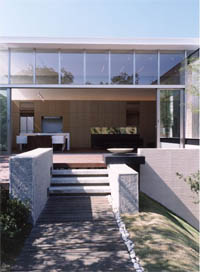Beware of agency-arranged building inspections
Recently, several of Japan’s major real estate brokerages have started offering home inspections on properties they list. In some cases the agency will offer to provide coverage for up to two years following the sale for any defects, but the fine print usually requires the property to already be free from defects and for the agency to act on behalf of both the buyer and the seller resulting in a double commission (a full commission collected from each party).
This poses a serious conflict of interest, since agents have a vested interest in the sale. Buyers should be cautious about relying on these reports. There may be cases where inspection reports arranged by the seller’s agency receive passing grades but fail to include obvious defects.Read more
Understanding the lifespan of a Japanese home or apartment
 Are second-hand homes really that bad?
Are second-hand homes really that bad?
There is a common opinion in Japan that brand new homes are a safer and less risky purchase than pre-owned ones. But, all old homes were new at one stage. Whether they are new or old, all buildings will deteriorate over the years in some form or another.
The second-hand housing market can be referred to as a 'lemon market'. As described by economic George Akerlof in his 1970 paper 'The Market for Lemons: Quality Uncertainty and the Market Mechanism', there can be good used cars and bad used cars. Similarly, the second-hand housing market may contain well-maintained and cared for homes, but can also contain just as many neglected and defective homes. On the outside, they may all appear the same, but the 'rotten' homes out there destroy buyers' faith in the market and drag prices down.
